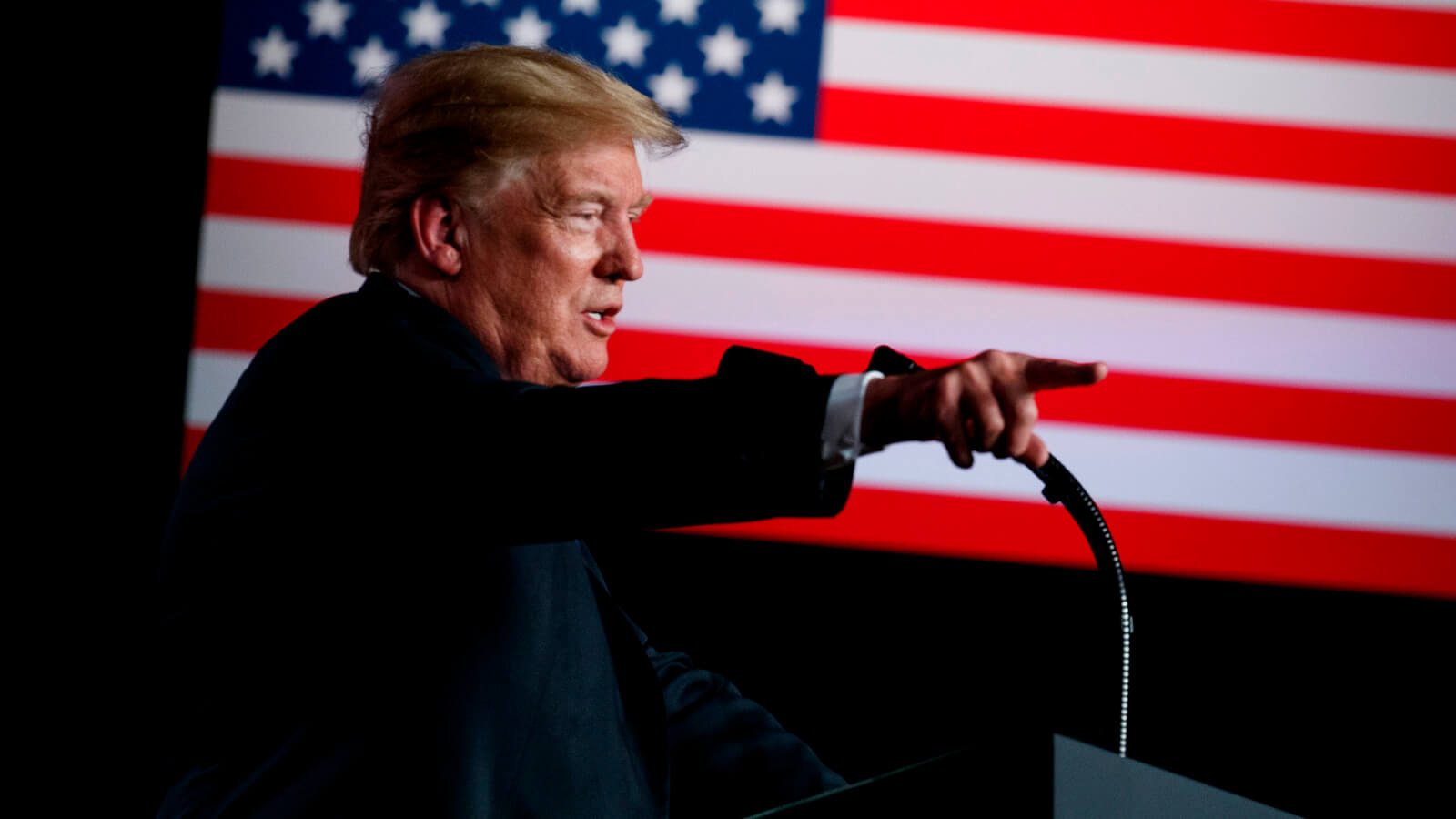GENEVA — President Donald Trump’s threat to the World Trade Organization (WTO) that a failure to treat the U.S. “properly” will mean “we will be doing something” has sent shockwaves rippling through Western capitals who fear that the “America First” agenda is increasingly leading to bruising fights with the other powers who comprise the globalized, neoliberal trade system.
The warning comes amid increasingly contentious trade negotiations between the White House and a range of U.S. trade counterparts who are being threatened with boosted tariffs and protectionist measures, including Mexico, China, Canada and most recently, the European Union.
During a White House meeting with Dutch Prime Minister Mark Rutte on Monday, Trump responded cryptically to a question about whether the U.S. will quit the WTO and failed to deny that it would abandon the group:
WTO has treated the United States very badly, and I hope they change their ways. They have been treating us very badly for many, many years and that’s why we were at a big disadvantage with the WTO. And we’re not planning anything now, but if they don’t treat us properly, we will be doing something.”
EU leaders fear U.S. plans to raise tariffs for its domestic automobile industry while negotiating varying tariff rates with specific countries, clearly trampling WTO rules against trade penalties and other barriers to the free flow of goods across borders.
The worry over Trump’s intention to undermine the post-Cold War trading order reached an acute stage after Axios reported on a leaked draft of a bill granting the president the right to ignore WTO commitments. Titled the “United States Fair and Reciprocal Tariff Act,” the bill would allow the White House to unilaterally ignore the “Most Favored Nation” principle barring countries from setting different tariff rates for countries outside of free-trade agreements (such as the North American Free Trade Agreement, NAFTA), among other measures.
While many see the bill’s passage through Congress as at best, a long shot, others are interpreting the leak as a trial balloon meant to gauge public opinion and warn U.S. trading partners and the WTO itself that the U.S. is deadly serious in its plan to come to blows for its right to be an exception to the trade group’s rules.
WTO shows signs of weakness
Founded in 1995 as a successor to the General Agreement on Tariffs and Trade, the WTO was meant to establish a general governance mechanism that would expedite global trade and litigate trade disputes through its arbitration body.
Since then, the world’s top imperialist power – the United States – has employed the WTO as a means to establish its transnational corporations’ dominance in less-developed markets, using the Dispute Settlement Body of the WTO to win far more trade disputes than any other country in the body, especially against those countries that are economically (and literally) outgunned by U.S. power.
Yet in recent months the European Union, India, Canada, South Korea and others have filed grievances against Washington, which has outraged its partners by levying new steel tariffs on them or, in the case of China, introducing tariffs on a range of Chinese products based on White House claims that Beijing abuses and violates U.S. intellectual property rights.
“The problems are coming from the behavior of a single country that would like to return to the jungle,” a senior WTO official told Germany’s Der Spiegel, in clear reference to the U.S.
From Trump’s first days in office, the president has floated proposals that completely contradict the letter and spirit of the WTO, outraging leaders in countries that have traditionally been openly warm toward Washington. His initial insistence that he would completely revise NAFTA or simply junk the deal has thrown the fate of the trade accord into question, while his promise to build a wall at the U.S.-Mexico border and make Mexico pay for it through new taxes on Mexican imports would be a major transgression against laws established by the WTO.
While the U.S. is facing such a dramatic bombardment of grievances, analysts see Trump’s threats as reflective not only of the decline of U.S. hegemony but as an indicator of the irreconcilable differences that have long seethed within the body. Critics see the attitude of members states as reflective of their own narrow self-interest, with countries like Canada, Germany, China and the U.S. each prioritizing their own short-term financial gain rather than the “rules-based global order” favoring top-tier imperialist nations which the WTO’s defenders are howling in defense of.
Top Photo | President Donald Trump speaks during a “Salute to Service” dinner, July 3, 2018, in White Sulphur Springs, W.Va. Evan Vucci | AP
Elliott Gabriel is a former staff writer for teleSUR English and a MintPress News contributor based in Quito, Ecuador. He has taken extensive part in advocacy and organizing in the pro-labor, migrant justice and police accountability movements of Southern California and the state’s Central Coast.


